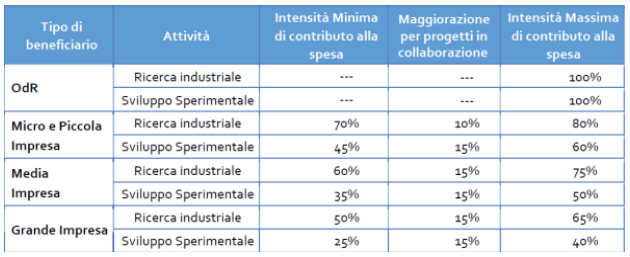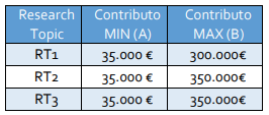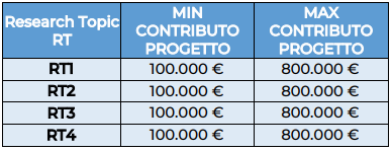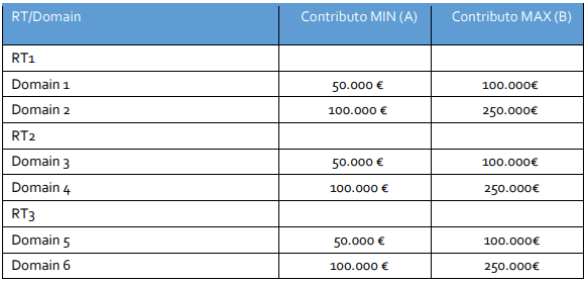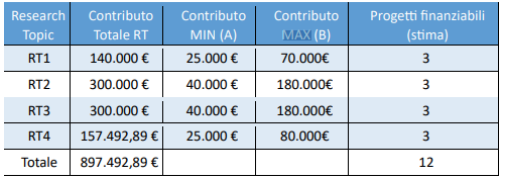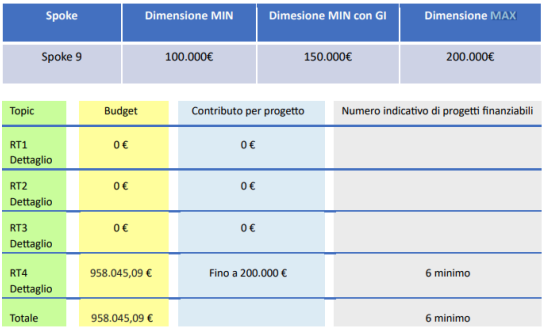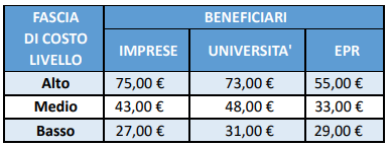Il modello iNEST si basa sull’impiego esteso delle information and communication technologies (ICT) e della digitalizzazione, e mira allo sviluppo di tecnologie innovative per il benessere delle persone , la diffusione della cultura e la crescita economica e imprenditoriale. I progetti di ricerca industriale e sviluppo sperimentale finanziati dall’ecosistema iNEST si articolano in nove aree tematiche (Spoke):
- Spoke 1 – Ecosystems for Mountain Innovations
- Spoke 2 – Health, Food and Lifestyles
- Spoke 3 – Green and digital transition for advanced manufacturing technology
- Spoke 4 – Città, Architettura e Design sostenibile
- Spoke 5 – Smart and sustainable environments (manufacturing, working, living)
- Spoke 6 – Tourism, culture and creative industries
- Spoke 7 – Smart agri-food
- Spoke 8 – Maritime, marine and inland water technologies: towards the Digital Twin of the Upper Adriatic
- Spoke 9 – Models, Methods, Computing Technologies for Digital Twin
L’ecosistema iNEST destina le risorse in parte al territorio del Nord-Est e in parte al territorio del Mezzogiorno.
N.B. Le informazioni presenti in questa scheda riguardano i soli bandi destinati al territorio del Mezzogiorno.
Soggetti ammissibili
Micro, Piccole, Medie e Grandi Imprese, coinvolte singolarmente o in modalità collaborativa, mediante il finanziamento di progetti-pilota, dimostratori e/o
azioni sperimentali. I Progetti devono essere orientati a livelli medio-alti di maturità tecnologica, in grado di collocarsi nella transizione da ricerca
industriale a innovazione orientata al mercato. L’attività di ricerca può essere potenziata mediante il coinvolgimento di Organismi di Ricerca, pubblici o
privati. I progetti devono essere congruenti con le tematiche proposte dallo Spoke di riferimento.
Obiettivi specifici
Spoke 1 – Mezzogiorno – Ecosystems for Mountain Innovations
RT1 – Sicurezza e qualità della vita negli ambienti montani;
RT2 – Resilienza dei sistemi di produzione e approvvigionamento negli ambienti montani;
RT3 – Decentramento di strutture e di infrastrutture in aree montane.
Spoke 2 – Mezzogiorno – Health, Food and Lifestyles
RT1 – Digital Health and Systems for the Citizens:
- SUD.1 – Sviluppo di sistemi sperimentali di comunicazione per consentire la collaborazione a distanza tra utenti remoti in ambiente virtuale;
- SUD.2 – Sviluppo e validazione di una soluzione digitale per la gestione ed il controllo di cure domiciliari in pazienti con patologie cronico
degenerative ed anziani fragili
RT2 – Biotechnologies and Pharmaceutical Technologies:
- SUD.3 – Sviluppo di strategie per il sequenziamento di molecole di RNA e acidi nucleici in generale nei biofluidi e materiale correlato di pazienti affetti da malattie neurodegenerative
- SUD.4 – Sviluppo di strategie per il sequenziamento di molecole di DNA e acidi nucleici in generale nei biofluidi e materiale correlato di pazienti
affetti da malattie neurodegenerative.
RT3 – Devices for Health
- SUD.5 – Sviluppo di proteine ricombinanti biopolimeriche termo-responsive per la diagnostica e la medicina di precisione
Spoke 3 – Mezzogiorno – Green and digital transition for advanced manufacturing technology
RT1 – Energia
RT2 – Manifattura intelligente, Meccatronica e Robotica
RT3 – Materiali
RT4 – Intelligenza Artificiale e Scienza dei Dati
Spoke 4 – Mezzogiorno – Città, Architettura e Design sostenibile
RT1. Piano strategico per lo sviluppo dei settori dell’edilizia e della progettazione sostenibile:
- D1. Piccoli progetti per la questione ambientale, le risorse, la fragilità dei sistemi antropizzati
- D2. Grandi progetti per la questione ambientale, le risorse, la fragilità dei territori e dei sistemi antropizzati
RT2. Soluzioni tecnologiche per i settori dell’edilizia e della progettazione sostenibile:
- D3. Piccoli progetti per la transizione energetica, l’adeguamento degli edifici e delle città
- D4. Grandi progetti per la transizione energetica, l’adeguamento degli edifici e delle città
RT3. Interazione tra ambienti ed esseri umani nei settori dell’edilizia e della progettazione sostenibile:
- D5. Piccoli progetti per la giustizia spaziale, l’accessibilità e inclusione negli edifici e nelle città
- D6. Grandi progetti per la giustizia spaziale, l’accessibilità e inclusione negli edifici e nelle città
Temi trasversali
T1. Nuovi materiali e dispositivi
T2. Patrimonio, recupero, conservazione
T3. Abitabilità, usabilità, accessibilità
T4. Resilienza dei territori e delle città
T5. Reti intelligenti: energia, mobilità, acqua, verde
T6. Digitalizzazione, dei processi progettuali e delle città
Spoke 5 – Mezzogiorno – Smart and sustainable environments (manufacturing, working, living)
1. Tecnologie nuove ed emergenti centrate sull’utente per la manifattura e altri ambienti industriali di lavoro
2. Tecnologie assistive personalizzate e ambienti di vita intelligenti per l’inclusione in spazi pubblici e privati
Spoke 6 – Mezzogiorno – Tourism, culture and creative industries
1. Nuove Tecnologie Digitali
2. Analisi dei dati
3. Modelli di business sostenibili
4. Nuove narrazioni e strategie di comunicazione
Spoke 7 – Mezzogiorno – Smart agri-food
1. Business models for sustainable agri-food at different levels
2. Process/product innovation for sustainable agri-food
3. Circular economy
4. Logistics, supply chain and vertical coordination
Spoke 8 – Mezzogiorno – Maritime, marine and inland water technologies:towards the Digital Twin of the Upper Adriatic
1. Biologia degli ecosistemi dell’idrosfera
2. Rischi fisico-chimici ed impatti sull’idrosfera
3. Mobilità sostenibile via mare e nelle acque interne
4. Pianificazione marittima e territoriale integrata mareterra
5. Sviluppo di un gemello digitale – Digital Twin – del Nord Adriatico
Spoke 9 – Mezzogiorno – Models, Methods, Computing Technologies for Digital Twin
1. Mathematical, numerical and data-driven modeling
2. Model Order Reduction
3. Automatic learning for Digital Twins
4. Applications of DT in industry, medicine, Environmental sciences, daily life
Agevolazione
L’intensità del sostegno, sotto forma di contributo a fondo perduto, varia in funzione della tipologia e delle caratteristiche dimensionali del beneficiario e
della tipologia di attività svolta (Ricerca Industriale, RI o Sviluppo Sperimentale, SS), così come illustrato nella tabella seguente:
Il contributo complessivo concesso al singolo progetto non potrà essere superiore al contributo massimo definito per ogni singolo Spoke, come da
tabelle seguenti:
Spoke 1 – Dotazione finanziaria € 454.812,51
Spoke 2 – Dotazione finanziaria € 931.260,78
Spoke 3 – Dotazione finanziaria € 1.303.688,63
Spoke 4 – Dotazione finanziaria – € 1.175.000,00
Spoke 5 – Dotazione finanziaria – € 898.000,00
Spoke 6 – Dotazione finanziaria € 918.989,64
Spoke 7 – Dotazione finanziaria € 897.492,89
Spoke 8 – Dotazione finanziaria € 897.492,84
Spoke 9 – Dotazione finanziaria € 958.045,09
Spese ammissibili
a) spese di personale specificamente destinato a realizzare il progetto – secondo i Costi Standard di cui alla tabella seguente:
b) costi indiretti – determinati forfettariamente e pari al 15% dei costi diretti ammissibili per il personale;
c) costi amministrativi, a copertura dei soli costi di auditor/revisori esterni condotto da personale indipendente e specializzato, iscritti nel registro dei revisori legali che certifichi le spese sostenute e i rendiconti, nel rispetto delle norme comunitarie e delle procedure di revisione in essere, mediante una relazione tecnica unitamente ad attestazione rilasciata in forma giurata e con esplicita dichiarazione di responsabilità. I costi della suddetta voce saranno rendicontati a costi reali e non potranno essere superiori al 10% del costo del personale;
d) costi per servizi di consulenze specialistica, purché essenziali per l’attuazione del progetto ovvero spese di ricerca esterna contrattuale affidate a OdR non affiliati al progetto iNEST. I servizi in oggetto devono essere utilizzati esclusivamente ai fini dell’attività di ricerca e/o sviluppo di progetto e non di supporto al progetto (es. attività di management, rendicontazione, altro), e sono ammissibili nel limite massimo del 35% dei costi totali ammessi per ciascun partner. Devono essere attivati alle normali condizioni di mercato e non comportare elementi di collusione;
e) costi per spese per materiali, forniture e prodotti analoghi, direttamente imputabili all’attività di progetto.
Durata
La durata di realizzazione del progetto non potrà essere superiore a 12 mesi a decorrere dalla data indicata nel provvedimento di ammissione al finanziamento.
Istruttoria
La valutazione prevede una istruttoria di ricevibilità e di ammissibilità e conformità; se questa viene completata con esito positivo, il progetto è sottoposto alla valutazione di merito.
Erogazione
Lo Spoke, dopo avere effettivamente ricevuto l’erogazione dall’HUB iNEST, si impegna a trasferire il contributo maturato in relazione alle attività eseguite e alle spese sostenute e rendicontate, fino a un massimo del 80% del contributo complessivo del singolo beneficiario. L’erogazione finale (minimo del 20%) è disposta, sempre previa erogazione allo Spoke da parte dell’HUB, a conclusione del progetto, sulla base dei costi effettivamente sostenuti e della realizzazione degli obiettivi fissati.
Presentazione
La scadenza per la presentazione delle domande è fissata alle ore 24:00 del giorno 08 luglio 2024.
Disclaimer
Alcuni parametri potrebbero variare in base allo Spoke di riferimento.

